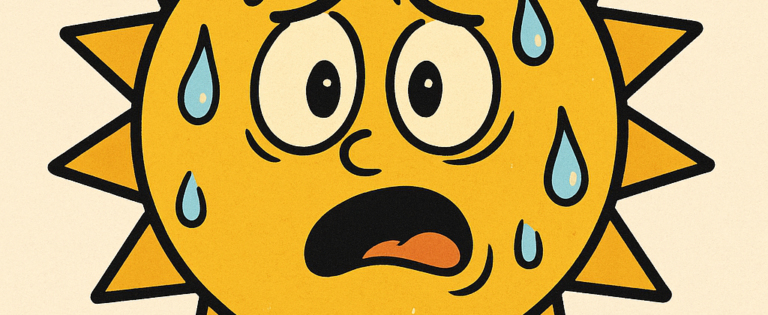Dehydration runs rampant during the summer, which puts you at a higher risk of having heat stroke. Too often, stories for heat stroke are found once the ambulance is called for them because of the symptoms not being managed ahead of time. Early signs are dizziness, headache, rapid heartbeat, excess sweating that will eventually dry up due to dehydration, and even getting to a point of passing out.
But let’s ask the most important question:
WHAT IS HEAT STROKE?
Heat Stroke is a serious form of a heat-related illness which happens when the body overheats and can’t cool itself down, causing your body temperature to skyrocket. Prolonged exposure to searing heat or intense physical activity can lead to heat stroke.
Unlike heat exhaustion, heat strokes can damage vital organs if not treated with haste. This is considered a medical emergency.
WHAT ARE SYMPTOMS OF HEAT STROKE?
- Common symptoms of heat stroke are:
- High body temperature (104°F / 40°C or higher)
- Confusion, agitation, slurred speech, delirium, seizures, or even unconsciousness
- Hot, red, dry, or damp skin (due to failed sweating mechanism)
- Rapid, strong pulse
- Headache
- Dizziness or lightheadedness
- Nausea or vomiting
- Loss of coordination
- Shallow, rapid breathing
WHAT CAN YOU DO TO PREVENT HEAT STROKE?
The easiest treatments for heat stroke are:
- Electrolyte drinks (Gatorade, Pedialyte, Powerade). Because electrolytes are lost through sweat, your body needs to have them replenished.
- Consuming salty foods with water helps maintain proper hydration. However, too much salt can also lead to dehydration, so it is a balance each person must find individually. Check with your doctor or nutritionist about the recommended daily salt intake for you.
- Cooling the skin of someone dealing with heat stroke helps. Get them to shade or a cooler area. Wet a cool sponge and dampen their skin. Fan the person and use ice packs and/or wet towels on the armpits, neck, and groin.
Knowledge of the symptoms and preventative care (healthy diet, maintained hydration, best health opportunities) are the best treatments!


